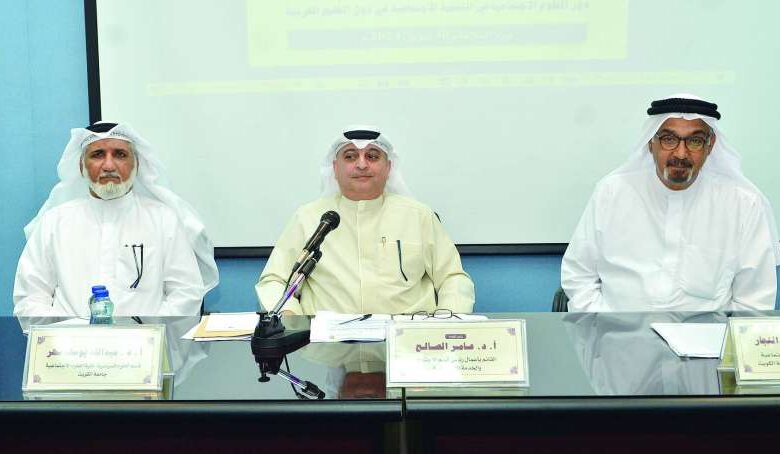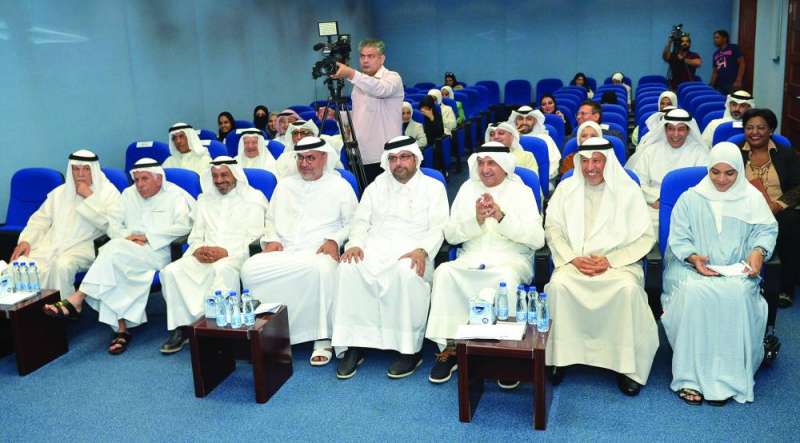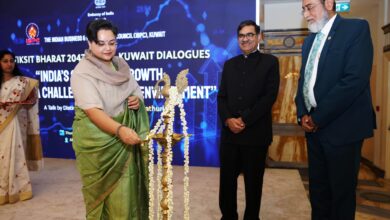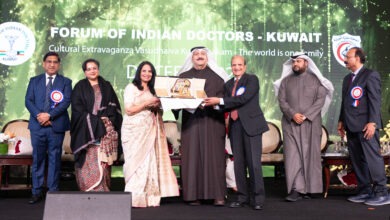Seminar analyzes Kuwait’s stagnant development despite 32 billion dinar investment
Kuwait has spent 32 billion dinars since 2010 on development plans, yet the Human Development Index lags

The Centre for Gulf Studies and the Arabian Peninsula, in collaboration with Kuwait University, recently convened a seminar titled “Development Indicators in the State of Kuwait and the Arab Gulf States.” The seminar, held at the Kuwait International Bank hall within the Faculty of Social Sciences at Kuwait University Shuwaikh, garnered the presence of esteemed ambassadors and scholars.
The gathering delved into analyzing the factors contributing to the stagnation of development indicators, particularly in human development, health, and education, despite Kuwait’s substantial investment of 32 billion dinars across three development plans since 2010.
In his inaugural address, Dr. Othman Al-Khader, Acting Deputy Director of Kuwait University Research, underscored the significance of continuous monitoring of economic and social development indicators. He emphasized their role in shaping comprehensive development philosophies and formulating policies.

Key development indicators: A comprehensive analysis
Dr. Yacoub Al-Kandari, Director of the Centre for Gulf Studies, outlined six crucial development indicators chosen for analysis, including happiness, human development, e-government, cybersecurity, human capital, and perceptions of corruption.
Assessment of global indices
Dr. Baqer Al-Najjar and Dr. Abdullah Saher provided insights into Kuwait’s performance in global indices such as the World Happiness Index and the Human Development Index.
During the first session, chaired by Dr. Amer Al-Saleh, Dr. Baqer Al-Najjar presented insights on “GCC Countries in the Global Happiness Index.” Dr. Abdullah Saher delved into the topic of “Council Countries in the World Human Development Index.”
Dr. Al-Najjar highlighted the prominent positions held by regional countries on the happiness index within the Arab region, including Kuwait, Bahrain, the UAE, Saudi Arabia, and Qatar. Notably, these reports assess happiness across various age groups, revealing regional disparities compared to global benchmarks.
While 82 percent of Gulf countries feature in the report, the happiness indicators of Gulf nations surpass those of America.
Dr. Al-Najjar attributed the region’s high happiness index to its elevated per capita income rates, positioning the UAE and Qatar ahead of America and Singapore. However, Kuwait and Bahrain have experienced a decline in their rankings, prompting further exploration into underlying factors influencing happiness metrics.
Root causes of declining indicators
Dr. Saher identified three primary reasons for Kuwait’s declining development indicators: low human and social capital, poor performance in competitive standards coupled with high corruption rates, and a lack of transparency and bureaucratic efficiency.
Survey findings revealed concerns regarding appointments based on tribal and sectarian affiliations, and a lack of application of the principle of reward and punishment. Dr. Saher emphasized the urgent need for cultural and institutional reforms to restore faith in governance systems.
The societal impact of corruption was highlighted, with over 80 percent of respondents viewing it as symptomatic of a broader erosion of social values. Survey findings indicated a lack of confidence in politicians, ranking Kuwait lowest compared to Gulf Cooperation Council countries.
The frequent turnover of governments and National Assembly dissolutions, led to an average government lifespan of only about 14 months. This instability contributes to a lack of institutional trust and hinders long-term development planning.
With institutional efficiency ranking poorly, there is a further rise for the need of systemic reforms to restore public trust.
Dr. Saher also highlighted concerns regarding the accuracy, quality, and timeliness of statistical data, particularly from official authorities. He underscored the importance of reliable data for accurate assessments of national development and called for greater transparency in data reporting processes.
As Kuwait navigates its development journey, stakeholders must collaborate to implement robust reforms aimed at fostering a culture of integrity, transparency, and accountability. The seminar’s insights serve as a call to action for policymakers, academics, and civil society actors to work together for Kuwait’s sustainable development and inclusive growth.












